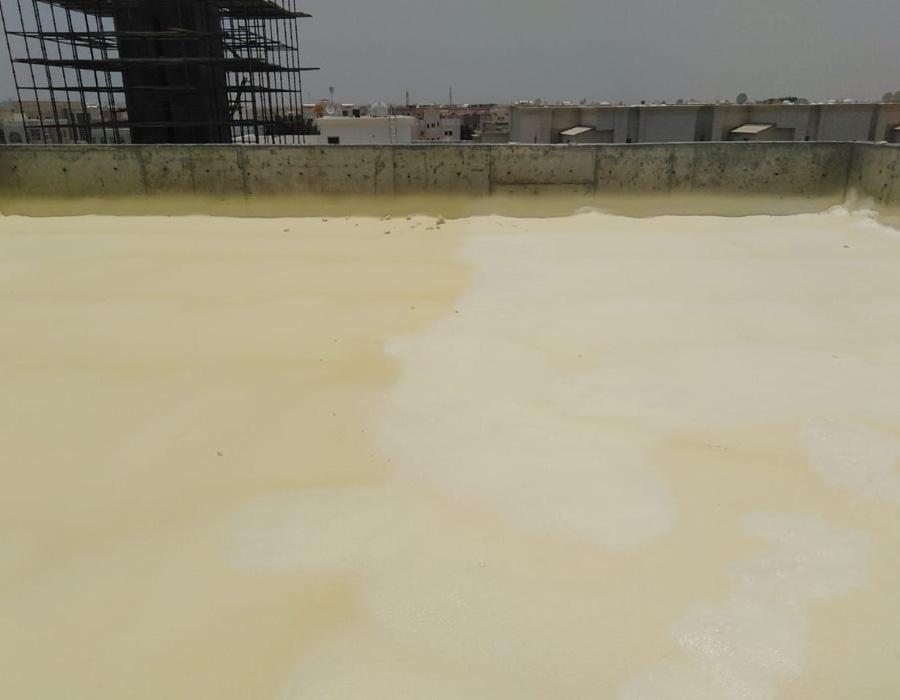WHAT ARE THE BEST WATERPROOFING MATERIALS FOR YOUR BUILDING?

1. ROOF WATERPROOFING APPLICATIONS
When it comes to water infiltration, the roof is one of the two most vulnerable parts of a building. Roofing materials are generally waterproof, but this is insufficient. Roofs are subject to significant wear and tear and should last at least 4-5 decades. Additional waterproofing materials must be added.
They are either applied over the roof as a protective coating or installed beneath it as part of the roof frame. A professional contractor will advise you on the best waterproofing products based on the type of roof and the climate in your area (average number of rainy days per year, air humidity, etc.).
2. WALL WATERPROOFING
Waterproofing materials for walls must provide more than just water resistance. They must also incorporate vapour or air barriers. Otherwise, moisture may become trapped in the masonry and carpentry beneath the insulation, causing mould, mildew, and/or fungi to grow.
3. WATERPROOFING OF BALCONIES AND TERRACES
Waterproofing building materials for the balcony and terrace must have certain properties, such as UV resistance and flexibility. Temperature variations cause minor movement on balconies and terraces. Under the average lifespan of these materials, rigid waterproofing materials would crack and require repair or replacement in a short period of time.
WATERPROOFING MATERIAL TYPES
We will now provide you with a comprehensive list of waterproofing materials, as promised.
1 POLYURETHANE
Polyurethane is regarded as one of the most effective waterproofing materials. It is easy to apply and penetrates the surface deeply and evenly. As a result, the polyurethane membrane will fill in even the smallest cracks in concrete, reducing its ability to absorb water. Another significant advantage of polyurethane is its resistance to oil, detergents, and various chemicals.
Polyurethane is one of the most versatile waterproofing materials due to its characteristics and benefits. It is suitable for use on walls, balconies, terraces, and walls.
2 COATING WITH CEMENT
The cementitious coating is a powder mixture of sand, organic and inorganic materials, and silica-based materials. It is very popular among waterproofing contractors due to its ease of application. They only need to mix the powder with a specific amount of water before they can begin the installation work.
The disadvantage of this advantage is the cementitious coating's lack of flexibility. As a result, it is one of the basement and foundation waterproofing materials that we recommend.
3 RUBBER EPDM
EPDM rubber is one of the recommended roof waterproofing materials. It is available in two thicknesses of membrane: 45 mils and 60 mils. The main advantage of this waterproofing product is its flexibility, which is essential for roof waterproofing because it expands and contracts constantly due to temperature variations.
4. RUBBERIZED ASPHALT
This is a waterproofing product that is commonly used on commercial building roofs. It is a very tough and flexible material with very low water vapour permeability that provides excellent protection against all weather conditions. It also dries quickly, within 3-4 hours of being applied.
5 THERMOPLASTIC SYSTEM
This is one of the most durable waterproofing materials, lasting approximately 50 years. When heated properly, thermoplastic solidifies and is an excellent choice for sealing sheets and panels. Because it contains elastomers, thermoplastic is very flexible and impact resistant.
6 MEMBRANE BITUMINOUS
The bituminous membrane is versatile, easy to apply, and recommended for both commercial and residential buildings. It is made by combining bitumen (a substance similar to tar) with a mixture of materials. The end result is a sticky, viscous substance with high endurance.
However, because it is made from crude oil, it is not an environmentally friendly or sustainable waterproofing product. Bituminous membrane.
7. WATERPROOFING MEMBRANE MADE OF PVC
PVC membrane is one of the most commonly used roof waterproofing products. It is permeable to both water and vapour and can be reinforced for added durability. It is also very simple to set up and has a long lifespan.
- Industry
- Art
- Causes
- Crafts
- Dance
- Drinks
- Film
- Fitness
- Food
- Jogos
- Gardening
- Health
- Início
- Literature
- Music
- Networking
- Outro
- Party
- Religion
- Shopping
- Sports
- Theater
- Wellness
- News


